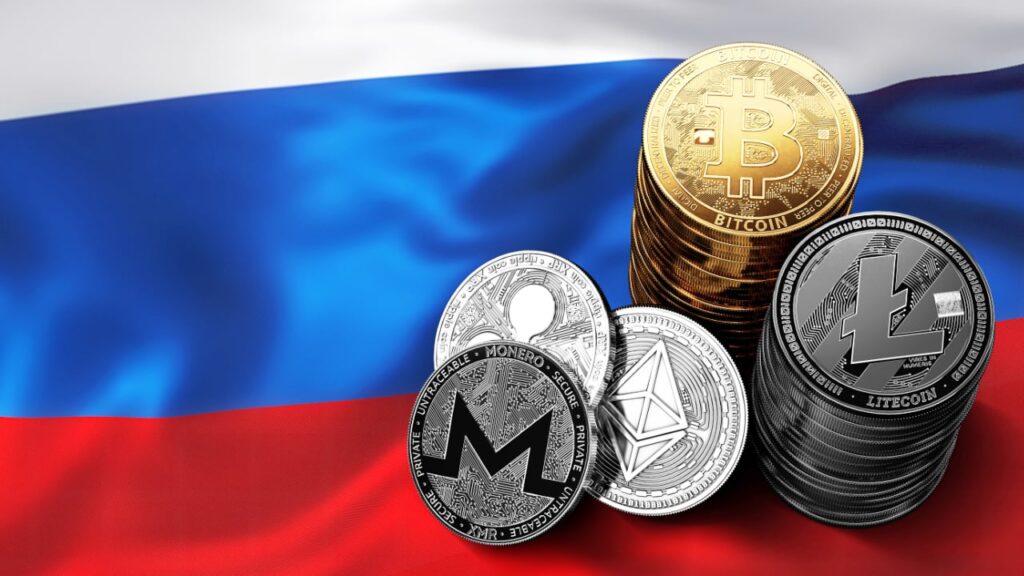-
A Russian legislator says the focus is on finding and halting criminal activities, not banning cryptocurrency.
-
While avoiding a Russia crypto ban, the law targets criminal behaviour.
-
Russia engages in unapproved deals to avoid sanctions and safeguard its economy and interests.
After much conjecture and dramatic press, Russian lawmaker Anton Gorelkin has elucidated Russia’s position on cryptocurrency laws, stressing that the nation does not plan to impose a complete prohibition on cryptocurrency transactions.
Clarification on Russia crypto ban: Dispelling Misconceptions
Contrary to earlier reports suggesting a complete ban on cryptocurrency transactions in Russia, Gorelkin, the Deputy Chairman of the State Duma Committee on Information Policy, Information Technologies, and Communications, affirmed that such claims are unfounded. While there is proposed legislation aimed at regulating the crypto ecosystem, it does not seek to outlaw crypto turnover entirely.
Gorelkin clarified that the proposed bill aims to introduce mechanisms to identify and prevent illegal or criminal crypto transactions, rather than prohibiting all crypto activities. He stressed that it would be illogical to include such provisions in the bill if the objective were to deem all crypto transactions illegal.
Additionally, the legislation targets crypto exchanges and platforms not affiliated with government pilot programmes, rather than imposing blanket restrictions on crypto turnover.
The decision to restrict certain crypto exchange operations aligns with Russia’s broader geopolitical considerations, particularly in light of Western sanctions. By limiting exposure to potential sanctions risks associated with unregulated crypto exchanges, Russia seeks to safeguard its financial stability and national interests.
However, individuals will still have access to foreign crypto exchanges and over-the-counter (OTC) services, preserving avenues for crypto transactions.
While the proposed legislation aims to regulate the crypto exchange sector, its impact on numerous OTC crypto services in Moscow remains uncertain. Gorelkin acknowledged the importance of accurate reporting over sensational headlines, urging media outlets to verify facts before disseminating information.
As the regulatory landscape continues to evolve, Russia remains committed to promoting digital finance solutions while addressing concerns related to illegal crypto transactions and geopolitical dynamics.
The evolving regulatory landscape surrounding cryptocurrency in Russia underscores the complexities and challenges associated with digital asset regulation on a global scale. As policymakers grapple with the intricacies of regulating this emerging asset class, striking a balance between innovation and oversight remains a paramount objective.
Also, Read; Binance exits Russia fully selling its firm to CommEX.
The proposed legislation targeting illegal or criminal crypto transactions reflects Russia’s commitment to combating illicit activities within the crypto space. Governments endeavour to reduce the risks connected to money laundering, financing of terrorism, and other illicit financial activities made possible by digital assets by putting strong regulatory frameworks and enforcement mechanisms in place.
Furthermore, regulatory clarity and oversight are essential in fostering investor confidence and safeguarding the integrity of the financial system.
Russia’s cautious approach to cryptocurrency regulation stems from a desire to protect its economic stability and national interests in the face of Western sanctions and geopolitical tensions.

Policymakers aim to ensure the resilience of the domestic financial ecosystem and reduce potential vulnerabilities to external pressures by imposing restrictions on the operations of cryptocurrency exchanges. However, striking a balance between geopolitical realities and the need for innovation remains a delicate balancing act for Russian authorities.
Despite regulatory challenges, Russia remains committed to promoting digital finance solutions and harnessing the transformative potential of blockchain technology. By fostering an enabling regulatory environment and supporting technological innovation, policymakers aim to position Russia as a global leader in digital finance and blockchain adoption.
Moreover, collaboration with international counterparts and industry stakeholders is crucial to driving interoperability and fostering cross-border innovation in the digital asset space.
As Russia navigates the complexities of crypto regulation, policymakers must remain vigilant and proactive in addressing emerging challenges and opportunities.
Through encouraging communication, cooperation, and information exchange within the cryptocurrency ecosystem, Russia can successfully negotiate regulatory ambiguities and advance long-term development in the digital asset sector.
Moreover, continued engagement with industry stakeholders and the public is essential in shaping inclusive and effective regulatory frameworks that foster innovation, protect investors, and safeguard financial stability.
Also, Read; Russia’s aim to offset the dollar;s global dominance impacts the world of crypto
Russia’s approach to cryptocurrency regulation reflects a delicate balance between fostering innovation and mitigating risks. By implementing targeted regulations and oversight measures, Russia aims to harness the potential of digital assets while safeguarding against illicit activities and external pressures.
As the global regulatory landscape evolves, clear communication and collaboration between policymakers, industry stakeholders, and the public will be essential in shaping a sustainable and resilient digital finance ecosystem in Russia and beyond.
